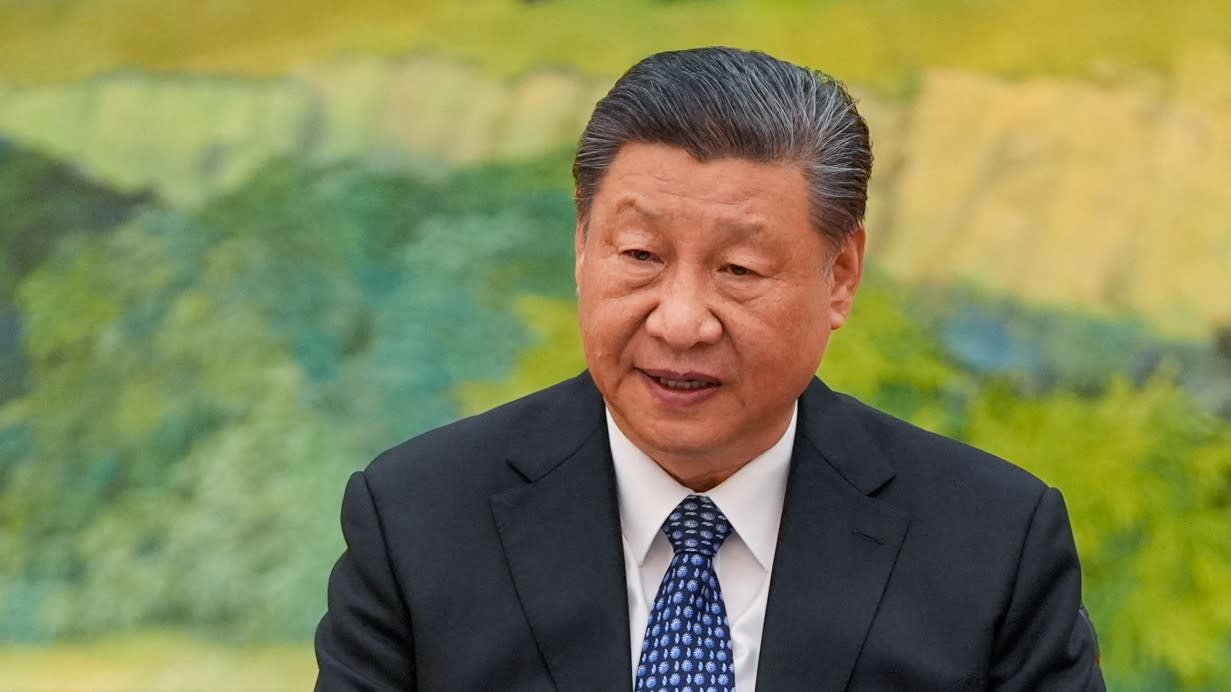Xi comes to Europe: what's on the agenda?

- Oops!Something went wrong.Please try again later.
- Oops!Something went wrong.Please try again later.
Xi Jinping is preparing to visit Europe for the first time in five years, amid rising tensions with the EU over trade and China's implicit support of Russia.
China's president will make state visits to Serbia, Hungary and France, beginning in Paris on Monday. German chancellor Olaf Scholz last week visited China, his country's biggest trading partner, but Xi's return trip "may lay bare European divisions over trade with Beijing", said Reuters. The EU is threatening to "hammer" the Chinese electric vehicle and green energy industries with tariffs, in response to "huge subsidies", which the bloc claims give manufacturers in China "an unfair edge".
The visits will be closely watched by Washington, after Congress last week passed a US military aid bill giving $61 billion to Ukraine and $8 billion to counter Chinese threats in Taiwan and the Indo-Pacific. China condemned the bill as a "dangerous provocation", said The Associated Press.
What's the significance of the trip?
Relations between Europe and China are at "their most fraught point in decades", said Bloomberg.
Xi's trip comes at a "crucial time" of Russian advancement in Ukraine, said Radio Free Europe (RFE), and before "potential fallout" from the US election in November. Xi will be looking to "repair some of the damage" to relations with Europe since his last trip in 2019.
European sentiments towards China have "soured", said The Diplomat. One of the "signature accomplishments" of Xi's last European tour was Italy becoming the first G7 country to sign up to China's Belt and Road Initiative (BRI). That has since "come undone". The Italian government withdrew from the BRI last year, as the much-criticised initiative "had not brought the promised benefits". China's "patronising insults" over how European countries handled the Covid-19 pandemic "certainly did Beijing no favours".
Tensions over economics – once "the glue that helped bind ties together" – have deepened. But the issue "most responsible" for fraying relations, accelerating a process of China-scepticism that was already developing, is Russia's invasion of Ukraine.
China "claims neutrality" in the war, but Xi and Vladimir Putin declared their governments had a "no-limits friendship" just days before the invasion began, said the AP news agency. China has since "refused to call the Russian assault an invasion", and has allegedly supplied Russia with military technology. On a recent visit to China, US Secretary of State Antony Blinken made these allegations clear.
Xi is expected to host Putin soon after he returns to Beijing, putting that no-limits friendship under international scrutiny.
What's on the agenda?
Trade and investment are expected to dominate. The EU is scrutinising Chinese investment, and the European Commission has opened trade investigations that could ultimately penalise China's clean tech exports.
France sees Xi's visit, which marks 60 years of French-Chinese diplomatic relations, as an "important diplomatic moment", said AP. President Emmanuel Macron, who visited China last April, has "reiterated the need" for Europe to "rebalance trade relations with China", said Voice of America (VoA). The two armed forces last week agreed to a maritime and aerial cooperation, which Beijing called a "vital step" in the consensus between Xi and Macron.
An upcoming summit in Switzerland about the Ukraine war will also be under the spotlight, said RFE. It is "unclear" whether China will participate or boycott the talks, scheduled for June.
Xi will then visit Serbia, probably on Tuesday – the 25th anniversary of Nato's bombing of the Chinese embassy in Belgrade. That "major event" sparked long-standing friendly relations between China and Serbia.
He will also visit Hungary: the first EU member to participate in Xi's BRI. Prime Minister Viktor Orbán was the only EU leader to attend a conference in Beijing on the BRI, and has "courted Chinese investment and closer ties" as his relationship with Brussels remains thorny. Budapest announced a security deal with China in February that could allow for Chinese police patrols in the country.
What's the likely outcome?
Xi is likely to "double down on Beijing's close relationship with both Budapest and Belgrade", said VoA. He hopes to show that China remains influential in Central and Eastern Europe, said Zsuzsa Anna Ferenczy, an expert on EU-China relations at National Dong Hwa University in Taiwan. The symbolism of those stops is important to Beijing "as an opportunity to amplify divisions within the EU".
Serbia and Hungary will "likely be rewarded with some investment deals and other agreements", said The Diplomat – but "few expect much real progress" when Xi is in France.

